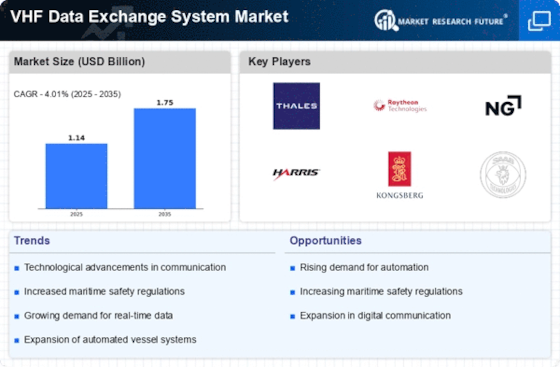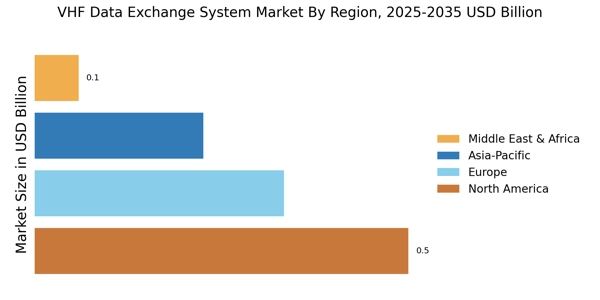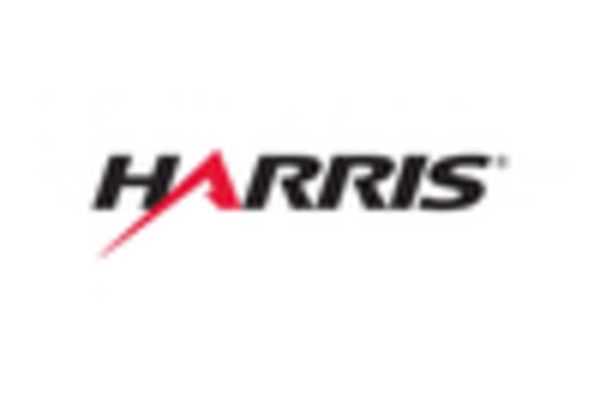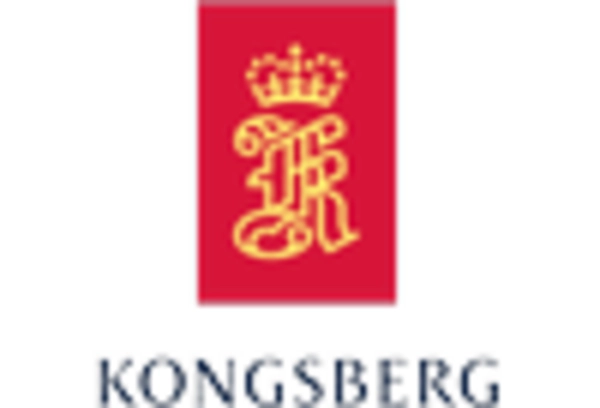Regulatory Compliance
Regulatory compliance plays a pivotal role in shaping the VHF Data Exchange System Market. Governments and international maritime organizations are increasingly mandating the use of advanced communication systems to enhance maritime safety and environmental protection. For instance, the International Maritime Organization has set forth guidelines that necessitate the implementation of VHF Data Exchange Systems for vessels operating in congested waters. This regulatory push is likely to drive market growth as companies invest in compliant technologies to avoid penalties and ensure safe operations. The market is expected to witness a significant uptick in demand as more jurisdictions adopt stringent regulations. Consequently, the VHF Data Exchange System Market is poised for expansion, with an anticipated increase in system installations and upgrades to meet these regulatory requirements.
Increased Maritime Traffic
The rise in maritime traffic is a crucial driver for the VHF Data Exchange System Market. As global trade continues to expand, the number of vessels navigating busy shipping lanes has increased significantly. This surge in traffic necessitates more efficient communication systems to prevent collisions and ensure safe navigation. The VHF Data Exchange System Market provides a reliable means for vessels to exchange critical information, such as position, course, and speed, thereby enhancing situational awareness among mariners. According to recent statistics, the number of commercial vessels is expected to grow by 3% annually, further amplifying the need for effective communication solutions. This trend indicates a robust demand for VHF Data Exchange Systems, positioning the market for substantial growth in the coming years.
Technological Advancements
The VHF Data Exchange System Market is experiencing a surge in technological advancements that enhance communication capabilities among maritime vessels. Innovations such as improved data processing algorithms and enhanced signal transmission technologies are driving the adoption of VHF Data Exchange Systems. These advancements facilitate real-time data sharing, which is crucial for navigation safety and operational efficiency. As a result, the market is projected to grow at a compound annual growth rate of approximately 6.5% over the next five years. The integration of artificial intelligence and machine learning into these systems further optimizes data analysis, allowing for predictive maintenance and better decision-making processes. This technological evolution not only improves safety but also reduces operational costs, making it a key driver in the VHF Data Exchange System Market.
Focus on Safety and Security
Safety and security concerns are paramount in the maritime industry, driving the VHF Data Exchange System Market. The increasing number of maritime incidents, including collisions and piracy, has heightened the need for reliable communication systems that can provide real-time data exchange. VHF Data Exchange Systems enhance situational awareness and enable vessels to communicate vital information swiftly, thereby improving safety outcomes. Furthermore, the integration of these systems with other safety technologies, such as Automatic Identification Systems (AIS), enhances their effectiveness. As stakeholders prioritize safety measures, investments in VHF Data Exchange Systems are likely to rise, contributing to market growth. The emphasis on safety not only protects lives but also safeguards cargo and reduces financial losses associated with maritime accidents.
Emerging Markets and Infrastructure Development
Emerging markets are increasingly investing in maritime infrastructure, which serves as a significant driver for the VHF Data Exchange System Market. Countries with developing economies are recognizing the importance of enhancing their maritime capabilities to support trade and economic growth. Investments in ports, shipping lanes, and communication technologies are on the rise, leading to a greater demand for VHF Data Exchange Systems. These systems are essential for modernizing maritime operations and ensuring efficient communication among vessels. As infrastructure development progresses, the market is likely to see a surge in system installations, particularly in regions where maritime trade is expanding. This trend indicates a promising outlook for the VHF Data Exchange System Market, as emerging markets continue to prioritize maritime safety and efficiency.

















